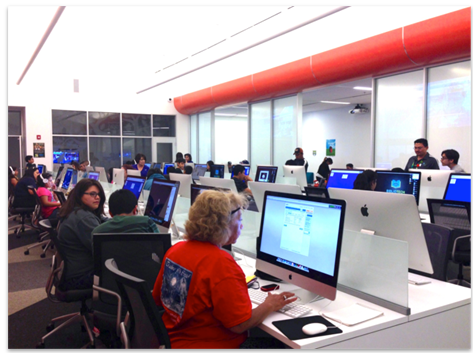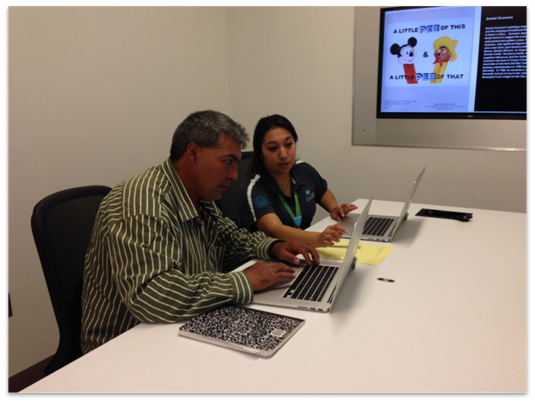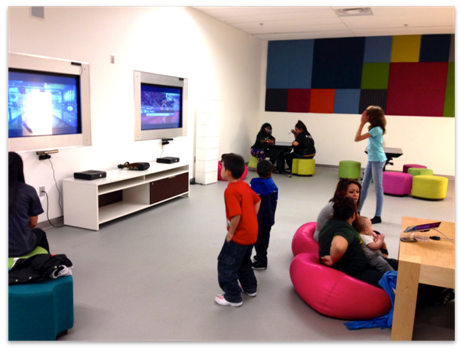Digital libraries, are they the future?
- Subscribe to RSS Feed
- Mark as New
- Mark as Read
- Bookmark
- Subscribe
- Printer Friendly Page
- Report to Moderator
- Plusnet Community
- :
- Plusnet Blogs
- :
- Digital libraries, are they the future?
Digital libraries, are they the future?
 Libraries are at the heart local communities, a source of information and leisure for people of all ages. Recently there’s been a lot of speculation and reporting of library closures, allegedly due to a lack of demand for the services they provide. But if you take a look at the statistics, the picture is very different. According to the Reading Agency, in 2013, 36% of adults used their local library; a figure which nearly doubles when looking at the younger population (60% of 5-10 year olds and 77% of 10-15 year olds). The internet and the growth of digital media, mean that traditional library services face competition, but do these advances in technology signal the death of the library? Plusnet investigates.
Libraries are at the heart local communities, a source of information and leisure for people of all ages. Recently there’s been a lot of speculation and reporting of library closures, allegedly due to a lack of demand for the services they provide. But if you take a look at the statistics, the picture is very different. According to the Reading Agency, in 2013, 36% of adults used their local library; a figure which nearly doubles when looking at the younger population (60% of 5-10 year olds and 77% of 10-15 year olds). The internet and the growth of digital media, mean that traditional library services face competition, but do these advances in technology signal the death of the library? Plusnet investigates.

Greenhill Library, Sheffield © Peter Barr, licensed for reuse under CC BY-SA 2.0
By successfully integrating these advances into their existing services, libraries are doing much to meet the developing demands of users. There are over 42,000 computer terminals in libraries nationwide, giving people access to digital catalogues and internet access. The use of library websites is also on the rise; in 2005/6 only 9% of adults visited library websites. This number has increased to 15% in 2012/13. By improving their digital offerings, libraries can enhance their relevance in a digital age, whilst still holding onto their traditional services which make them such an institution. Plusnet are helping Greenhill library in Sheffield do just this, by providing them with free broadband. A spokesperson for the library said:
“Internet access is vital to the library users. For many it is their only access to the internet, either because they cannot afford it at home or because they feel that they would not be able to use it without assistance. “The unemployed in particular have to search for jobs online very frequently and without the free access to the internet that Greenhill and other libraries provide, they would be at serious risk of losing their only source of income. The next step is to enhance our online profile so that we are more immediately available to the local community.”
One library in the US has taken the digital concept even further by embracing a paperless culture. The Bexar County BiblioTech opened in September 2013 and became the world’s first entirely digital library. The shelves of books are gone, instead are replaced by computers, IPads, and e-readers.
 ©Bexar County Bibliotech
©Bexar County Bibliotech
By going digital the library can service a much larger area with people having the option to access library catalogues from home. For anyone wanting to borrow an e-reader, use rooms or attend classes, visiting the library is still an option. The less tech savvy needn’t worry about being left behind by the BiblioTech either; as there is no need for to return books to shelves, staff time is freed up to help visitors. As a result of this support nobody is left out, as outlined by Head Librarian, Ashley Eklof:
“Our visitors come from all ages and backgrounds. We have young and old, and a large Spanish speaking population in the area, all of whom use the library and its facilities. We also visit military and retirement communities to cater for people who have difficulty coming to us.”
 ©Bexar County Bibliotech
©Bexar County Bibliotech
When asked if other libraries should follow suit, she replied:
"The Bexar County library system did not exist before the launch of BiblioTech in September of 2013, therefore we did not have to make the transition from a traditional print or hybrid library model to an all-digital model. We were fortunate in this way. A digital library can be a great alternative when starting from scratch, as digital collections provide equal access to our patrons who live near our physical location as it does to our patrons in the unincorporated areas of Bexar County. It's also a very financially viable option."
 Natasha Watkinson who campaigns on behalf of the Save Totley Library Campaign explains that digital libraries have their pros and cons which must be considered, not least in the expenditure just to get a digital library up and running:
Natasha Watkinson who campaigns on behalf of the Save Totley Library Campaign explains that digital libraries have their pros and cons which must be considered, not least in the expenditure just to get a digital library up and running:
“Digital libraries would provide Internet access and encourage residents to adopt new technology that they may not be able to afford themselves. I am not sure where local authorities in UK would get the capital investment needed to set up a completely new service with all the IT equipment. The Bexar County library cost £1.6M - the entire budget for the Sheffield library service which runs 27 libraries currently is £6.5M for 2013/14.”
Whether paperless libraries are the future or not, the digital age is here and providing people with access to the information held online is essential. Additionally, with the masses of information available online, libraries could become more important than ever to help people use the tools, and techniques required to access it, providing many with their first introduction to many new digital technologies. What do you think the future of libraries will be? Leave your thoughts in the comments below.
